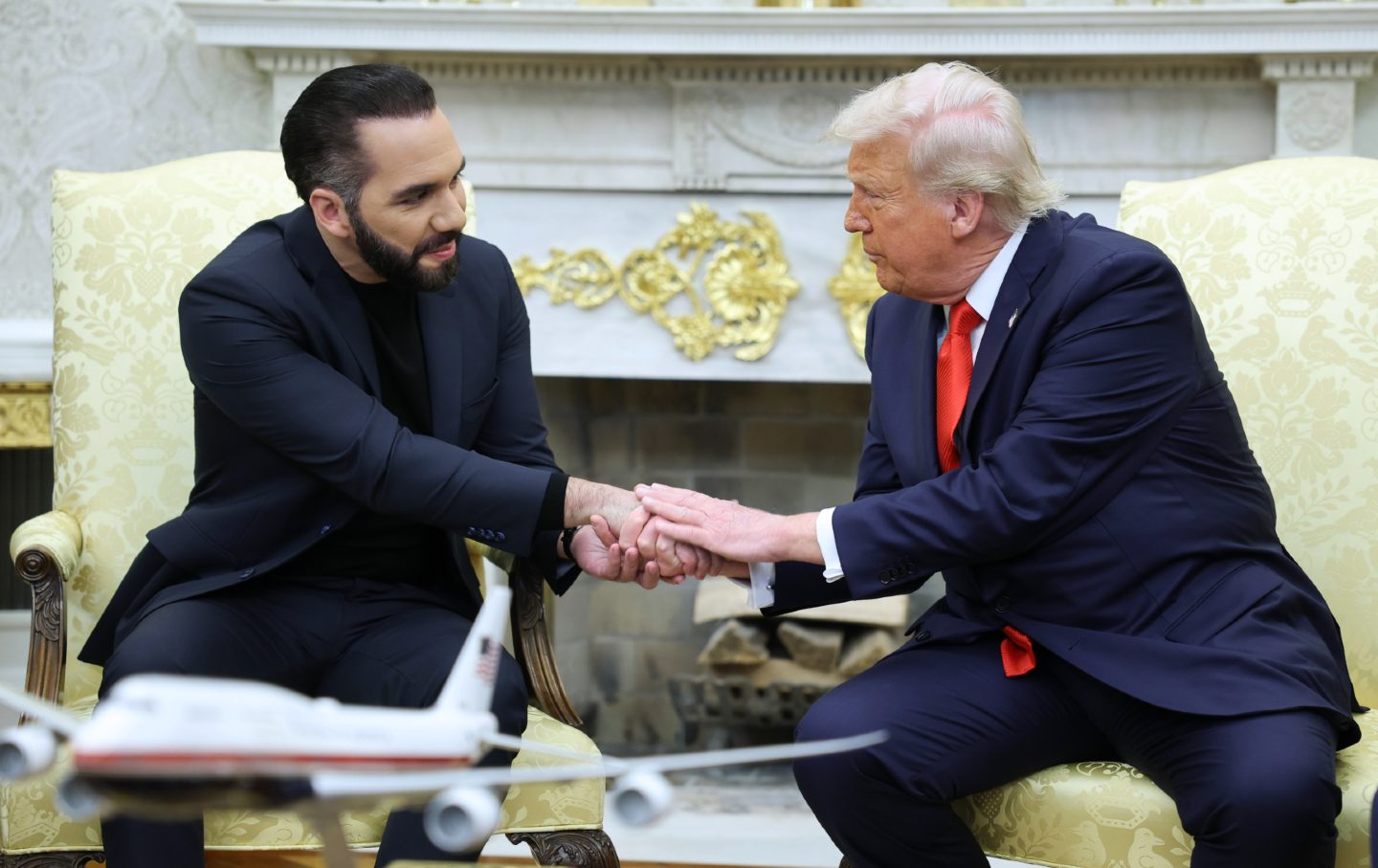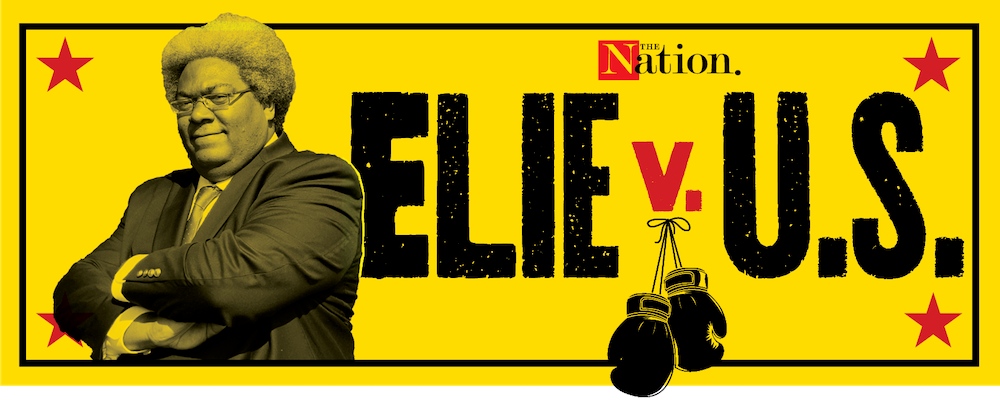Now Reading: The Deadly Seriousness Behind Trump and Bukele’s “Joke”
-
01
The Deadly Seriousness Behind Trump and Bukele’s “Joke”
The Deadly Seriousness Behind Trump and Bukele’s “Joke”

In a historic meeting between US President Donald Trump and El Salvador’s President Nayib Bukele, a revealing joke highlighted the seriousness underlying their discussions about eradicating terrorist organizations and fostering prosperity. While the meeting hinted at Cold War-era statecraft, it also raised concerns about the potential expansion of El Salvador’s role as a testing ground for repression. Amidst this, there are valuable lessons to be learned from Salvadoran antifascists in the fight against far-right movements.
Trump’s statements about Bukele accepting violent individuals into El Salvador have immediate consequences for immigrants like Kilmar Abrego Garcia, highlighting the need to address human rights violations. The transformation of Bukele from a pariah to a respected figure underscores the importance of historical memory in shaping the future.
El Salvador’s tumultuous history, including its role in informing US counterinsurgency strategies, offers insights into the militarization of police forces and the impact of gang violence. Understanding the distortion used to justify repression and the fusion of economic and inner-city warfare is crucial in combating fascism. By organizing and defending the rights of those affected by repression, communities can resist the expansion of the “terrorist” label and the accompanying crackdown.
Salvadorans’ resilience and history of struggle provide a blueprint for building an antifascist front against reactionary forces. Overcoming fascism requires not only political action but also a spiritual and psychological fortitude to withstand the challenges ahead. By drawing on the lessons learned from Salvadoran activism, individuals and movements can navigate the complexities of contemporary politics and work towards a better world.






